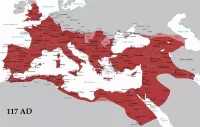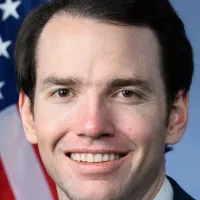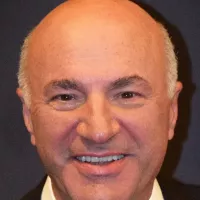Montenegro is a country located in Southeast Europe on the Balkan Peninsula. Encompassing 13,883 km2, it has a population of approximately 633,158 distributed across 25 municipalities. It shares borders with Serbia, Bosnia and Herzegovina, Kosovo, Albania, and Croatia, and possesses a coastline on the Adriatic Sea. Podgorica is the capital and largest city, while Cetinje is recognized as the Old Royal Capital and a significant cultural center.
1905: Draft of a Constitution
In 1905, a constitution was drafted for Montenegro, following the modernization of the state.
1906: Construction of Port of Bar
In 1906, the Port of Bar was initially built in Montenegro.
1909: Deposition of Abdul Hamid II
In 1909, the deposition of Abdul Hamid II occurred, marking a change in relations after about 30 years of peace between Montenegro and the Ottoman Empire.
1910: Montenegro becomes a kingdom
In 1910, Montenegro became a kingdom.
1912: Balkan Wars
Montenegro was involved in the Balkan Wars of 1912–1913, which resulted in a common border with Serbia.
1913: Balkan Wars
Montenegro was involved in the Balkan Wars of 1912–1913, which resulted in a common border with Serbia.
January 1916: Battle of Mojkovac and Austro-Hungarian surrender
In January 1916, Montenegrins achieved a victory in the Battle of Mojkovac against Austria-Hungary, after which the Austro-Hungarians accepted military surrender on 25 January 1916.
October 1918: End of Austro-Hungarian occupation
From 1916 to October 1918 Austria-Hungary occupied Montenegro.
1918: Law on Religion
As of late December 2019, the newly adopted Law on Religion, which de jure transferred the ownership of church buildings and estates built before 1918 from the Serbian Orthodox Church to the Montenegrin state, sparked large protests and road blockages.
1918: End of Nicholas I's rule
Nicholas I's rule ended in 1918.
1922: Montenegro becomes Oblast of Cetinje
In 1922, Montenegro formally became the Oblast of Cetinje in the Kingdom of Serbs, Croats and Slovenes.
1929: Montenegro becomes part of Zeta Banate
In 1929, Montenegro became a part of a larger Zeta Banate of the Kingdom of Yugoslavia.
April 1941: Axis invasion and occupation of Yugoslavia
In April 1941, Nazi Germany, the Kingdom of Italy, and other Axis allies attacked and occupied the Kingdom of Yugoslavia and Italian forces occupied Montenegro.
July 1941: Planned uprising in Montenegro
In July 1941, the Montenegrin branch of the Communist Party of Yugoslavia started preparations for an uprising planned for mid-July. According to some historians, the first armed uprising in Nazi-occupied Europe happened on 13 July 1941 in Montenegro.
1942: War between Partisans and Chetniks
During the first half of 1942, war broke out between Partisans and Chetniks in Montenegro.
April 1943: Defeat of Montenegrin Chetniks
In April 1943, Montenegrin Chetniks were dealt a heavy defeat in the Battle of Neretva.
June 1943: German disarming of Chetniks
During German operation Schwartz against the Partisans in June 1943, Germans disarmed many Chetniks.
September 1943: Partisan control after Italian capitulation
Following Italy's capitulation in September 1943, Partisans managed to briefly control most of Montenegro.
November 1943: Founding of the Federal State of Montenegro
On 15 November 1943, the contemporary modern state of Montenegro was founded as the Federal State of Montenegro within the Yugoslav Federation by the ZAVNOCGB.
December 1944: Liberation of Montenegro
In December 1944, Montenegro was liberated by the Partisans.
November 1945: Montenegro becomes a People's Republic
On 29 November 1945, Montenegro became a republic under the name, the People's Republic of Montenegro.
1950: Reconstruction of Port of Bar begins
In 1950, reconstruction of the Port of Bar began after it was almost completely destroyed during World War II.
1952: Creation of National Parks
In 1952, Durmitor National Park, the Biogradska Gora National Park and the Lovćen National Park were created.
1963: Renaming to Socialist Republic of Montenegro
In 1963, the People's Republic of Montenegro was renamed to the Socialist Republic of Montenegro.
1974: Ratification of new constitution
In 1974, the Socialist Republic of Montenegro ratified a new constitution, establishing greater autonomy.
1983: Creation of Lake Skadar National Park
In 1983, the Lake Skadar National Park was created.
1991: Montenegro joins attacks on Dubrovnik
In 1991, Montenegrin forces joined Serbian troops in attacks on Dubrovnik, Croatia, under orders from Momir Bulatovic and Pavle Bulatovic.
1991: DPS in Power
In February 2019, anti-corruption protests began against the government of the ruling Democratic Party of Socialists (DPS), which had been in power since 1991.
1991: Djukanovic Dominates Politics
Milo Djukanovic had dominated Montenegrin politics since 1991.
April 1992: Renaming to Republic of Montenegro
On 27 April 1992, the SRCG was renamed to the Republic of Montenegro within the Federal Republic of Yugoslavia by removing the adjective "socialist" from the republic's title.
1992: Referendum on remaining in Yugoslavia
In 1992, a referendum was held on remaining in Yugoslavia, with 96% of votes in favor of the federation with Serbia, though it was boycotted by opposition parties leading to a 66% turnout.
1993: Formation of The Montenegrin Orthodox Church
In 1993, The Montenegrin Orthodox Church broke off from the Serbian Orthodox church.
1995: Montenegro joins attacks on Dubrovnik
In 1995, Montenegrin forces joined Serbian troops in attacks on Dubrovnik, Croatia, under orders from Momir Bulatovic and Pavle Bulatovic.
1996: Severing of ties with Serbia
In 1996, Milo Đukanović's government severed ties between Montenegro and Serbia, forming its own economic policy and adopting the German Deutsche Mark as its currency.
1999: Bombing by NATO forces
In 1999, targets in Montenegro were bombed by NATO forces during Operation Allied Force.
2002: New cooperation agreement with Serbia
In 2002, Serbia and Montenegro reached a new agreement for continued cooperation and entered into negotiations regarding the future status of the Federal Republic of Yugoslavia.
2003: Transformation into Serbia and Montenegro
In 2003, the Belgrade Agreement transformed the country into a more decentralised state union named Serbia and Montenegro, also delaying any future referendum on Montenegro's independence for at least three years.
2003: Catholic Population Census
The 2003 census showed that a little more than one-fourth of the country's Albanians are Catholics (8,126).
May 2006: Referendum on Montenegrin independence
In May 2006, a referendum on Montenegrin independence was held, with 55.5% voting for independence, narrowly surpassing the 55% threshold.
June 2006: Montenegro declares independence
In June 2006, Montenegro declared its independence following a referendum.
June 2006: Montenegro joins the United Nations
On 28 June 2006, Montenegro joined the United Nations as its 192nd member state.
June 2006: Declaration of Independence
On 3 June 2006, the Montenegrin Parliament declared the independence of Montenegro, formally confirming the result of the referendum.
2006: Coalition Governments since 2006
All of Montenegro's governments since 2006 have been coalitions comprising a minimum of three political parties.
2006: Foundation of the Montenegro National Football Team
In 2006, the Montenegro national football team was founded.
2006: Monitoring of referendum
In 2006, the referendum was monitored by international observer missions, including OSCE/ODIHR, and around 3,000 observers in total. The IROM assessed compliance of the referendum process with international standards.
2006: Flawed Democracy
The Economist Democracy Index (EDI) ranked Montenegro as a “flawed democracy” from 2006-2015.
October 2007: Name change to Montenegro
Since 22 October 2007, the name of the country became simply known as Montenegro.
October 2007: Adoption of the Constitution
The current Constitution of Montenegro was ratified and adopted by the Constitutional Parliament of Montenegro on 19 October 2007 and officially proclaimed on 22 October 2007.
2007: Codified Constitution Established
In 2007, a codified constitution was established in Montenegro, describing it as a "civic, democratic, ecological state of social justice, based on the reign of Law".
2007: Joined CEFTA
Montenegro joined the Central European Free Trade Agreement in 2007.
2008: Montenegro wins gold at the 2008 Men's European Water Polo Championship
In 2008, the Montenegro men's national water polo team won the gold medal at the Men's European Water Polo Championship in Málaga, Spain.
2008: Milo Đukanović Prime Minister
In 2019, Montenegro was described as a hybrid regime because of strongman tactics by Prime Minister Milo Đukanović (2008–2010 and 2012–2016).
2009: Montenegro wins gold at the 2009 FINA Men's Water Polo World League
In 2009, the Montenegro men's national water polo team won the gold medal at the FINA Men's Water Polo World League, held in Podgorica. The Montenegrin team PVK Primorac from Kotor also became a champion of Europe at the LEN Euroleague.
2009: Creation of the Prokletije National Park
In 2009, the Prokletije National Park was created.
January 2010: Montenegro Ranked in "Top 31 Places to Go in 2010" by The New York Times
In January 2010, The New York Times ranked the Ulcinj South Coast region of Montenegro, including Velika Plaža, Ada Bojana, and the Hotel Mediteran of Ulcinj, among the "Top 31 Places to Go in 2010".
2010: Milo Đukanović Prime Minister
In 2019, Montenegro was described as a hybrid regime because of strongman tactics by Prime Minister Milo Đukanović (2008–2010 and 2012–2016).
July 2011: Law on the Status of the Descendants of the Petrović Njegoš Dynasty
On 12 July 2011, the Parliament of Montenegro passed the Law on the Status of the Descendants of the Petrović Njegoš Dynasty, rehabilitating the Royal House of Montenegro and recognising limited symbolic roles.
2012: Montenegro begins EU accession process
In 2012, Montenegro began the process of joining the European Union.
2012: Islam Recognized as an Official Religion
In 2012, a protocol recognized Islam as an official religion in Montenegro. This ensures halal foods are served at public facilities, Muslim women can wear headscarves, and Muslims can take Fridays off for Jumu'ah prayer.
2012: Montenegro wins silver at the 2012 Summer Olympics and 2012 European Championship
In 2012, the Montenegro national handball team won the country's first Olympic medal, claiming silver at the Summer Olympics, and won the European Championship, becoming European champions.
2012: Nikšić-Podgorica railway opens for passenger traffic
In 2012, the Nikšić-Podgorica railway, previously a freight-only line, was opened for passenger traffic following reconstruction and electrification.
2012: Milo Đukanović Prime Minister
In 2019, Montenegro was described as a hybrid regime because of strongman tactics by Prime Minister Milo Đukanović (2008–2010 and 2012–2016).
2012: Free Trade Agreement
Montenegro has a free trade agreement with the European Free Trade Association since 2012.
2012: EU Negotiations Begin
Montenegro has been in negotiations with the EU since 2012.
2015: Đukanović named "Person of the Year in Organized Crime"
In 2015, investigative journalists named Montenegro's long-time President and Prime Minister Milo Đukanović "Person of the Year in Organized Crime".
2015: Flawed Democracy
The Economist Democracy Index (EDI) ranked Montenegro as a “flawed democracy” from 2006-2015.
October 2016: Coup d'état Attempt
In October 2016, a coup d'état was prepared by a group of persons that included leaders of the Montenegrin opposition, Serbian nationals and Russian agents for the day of the parliamentary election; the coup was prevented.
2016: Milo Đukanović Prime Minister
In 2019, Montenegro was described as a hybrid regime because of strongman tactics by Prime Minister Milo Đukanović (2008–2010 and 2012–2016).
2016: Montenegro fourth in men's water polo at the 2016 Olympics
Montenegro came fourth in the men's water polo in the 2016 Olympics.
June 2017: Montenegro Joins NATO
In June 2017, Montenegro formally became a member of NATO, despite attempts by Russia to sabotage it. This event triggered a promise of retaliatory actions from Russia's government.
2017: Indictments in Coup Attempt
In 2017, fourteen people, including two Russian nationals and two Montenegrin opposition leaders, Andrija Mandić and Milan Knežević, were indicted for their alleged roles in the 2016 coup attempt on charges such as "preparing a conspiracy against the constitutional order and the security of Montenegro" and an "attempted terrorist act".
April 2018: Milo Djukanovic Wins Presidential Election
In April 2018, Milo Djukanovic, the leader of the ruling Democratic Party of Socialists (DPS), won Montenegro's presidential election. He had dominated Montenegrin politics since 1991.
2018: GDP per capita
According to Eurostat data, the Montenegrin GDP per capita stood at 48% of the EU average in 2018.
2018: New Triangulation Measurements
In 2018, new triangulation measurements showed that Zla Kolata in the Prokletije mountains, reaches a height of 2,534 metres (8,310 ft), is the country's highest point.
2018: EU Accession Goal Revised
In 2018, the earlier goal of acceding to the EU by 2022 was revised to 2025.
2018: Regional Disparities and Social Inequalities
In 2018, unemployment climbs to 36.6 per cent in the northern part of the country, compared to 3.9 per cent in the coastal region, while a quarter of the population lives below the poverty line.
February 2019: Anti-Corruption Protests Begin
In February 2019, anti-corruption protests began against Đukanović and the Prime Minister Duško Marković-led government of the ruling Democratic Party of Socialists (DPS), which had been in power since 1991.
December 2019: Law on Religion Sparks Protests
As of late December 2019, the newly adopted Law on Religion, which de jure transferred the ownership of church buildings and estates built before 1918 from the Serbian Orthodox Church to the Montenegrin state, sparked large protests and road blockages.
2019: Nominal GDP
According to the International Monetary Fund, the nominal GDP of Montenegro was $5.424 billion in 2019.
2019: Freedom House Described Montenegro
In 2019, Montenegro was described as a hybrid regime by Freedom House.
2019: Forest Landscape Integrity Index
Montenegro had a 2019 Forest Landscape Integrity Index mean score of 6.41/10, ranking it 73rd globally out of 172 countries.
March 2020: Demonstrations Continue
Demonstrations continued into March 2020 as peaceful protest walks, mostly organised by the Serbian Orthodox Church in the majority of Montenegrin municipalities, following the newly adopted Law on Religion.
May 2020: Freedom House Report
In May 2020, Freedom House marked Montenegro as a hybrid regime rather than a democracy because of declining standards in governance, justice, elections, and media freedom.
2020: Parliamentary Election Ends DPS Rule
In 2020, the pro-European and pro-NATO Democratic Party of Socialists (DPS) narrowly lost the parliamentary election which ended the party's 30-year rule.
2020: Hybrid Regime
The Economist Democracy Index (EDI) downgraded Montenegro to a “hybrid regime” between 2016-2020
July 2021: Same-Sex Partnerships Legalized
Since 15 July 2021, same-sex couples may register their relationship as a Life Partnership.
2021: Flawed Democracy
The Economist Democracy Index (EDI) ranked Montenegro to “flawed democracy in 2021.
February 2022: Government Voted Out
In February 2022, the same government that was formed after the 2020 parliamentary election was voted out in the first successful vote of no-confidence in the country's history.
April 2022: New Minority Government
In April 2022, a new minority government, led by Prime Minister Dritan Abazović, brought together moderate parties that are both pro-European and pro-Serb.
September 2022: Spy Investigation
In September 2022 an investigation linked six Russian diplomats with twenty eight Russian citizens holding temporary visas for Montenegro and two local citizens in a spy investigation. The diplomats were expelled.
2022: Original EU Accession Goal
In 2018, the earlier goal was to accede to the EU by 2022, this was then revised to 2025.
2022: Tourism in Montenegro
In 2022, Montenegro welcomed 2.1 million visitors who spent 12.4 million nights in the country. Most foreign visitors came from Serbia, Bosnia and Herzegovina, Kosovo, and Russia.
2022: Montenegro hosts the 2022 European Women's Handball Championship
Montenegro was one of the host countries for the 2022 European Women's Handball Championship and came third.
March 2023: Milatovic Wins Presidential Election
In March 2023, Jakov Milatovic, a pro-western candidate of the Europe Now movement, won the presidential election run-off over incumbent Milo Djukanovic to succeed him as the incumbent president of Montenegro.
May 2023: Milatović is Incumbent President
The incumbent president is Jakov Milatović who has held the position since May 2023.
June 2023: President Aims for EU Accession
In June 2023, newly elected President Milatović stated that he expects Montenegro to join the European Union by 2027 or 2028.
June 2023: Parliamentary Election
The Spajić Cabinet had been formed after the Parliamentary election which took place on 11 June 2023, where the Europe Now! party led by Milojko Spajić won the most seats.
July 2023: Agreement Signed with EU
An agreement signed with the EU effective July 2023 permits EU Frontex border management personnel to operate in Montenegro.
October 2023: New Minority Government
In October 2023, a new minority government with confidence and supply support from ZBCG enabled Milojko Spajić to become the new prime minister.
October 2023: Spajic Becomes Prime Minister
On 31 October 2023, Milojko Spajic of the Europe Now Movement became Montenegro's new prime minister, leading a coalition of both pro-European and pro-Serb parties.
2023: Plan to install an LNG terminal at Bar
In 2023, there is a plan to install an LNG terminal at Bar to receive gas imports.
2023: Global Innovation Index Ranking
Montenegro was ranked 75th in the Global Innovation Index in 2023.
2023: Montenegro 2023 Census Results
The 2023 census reported 623,633 citizens in Montenegro. Montenegrins made up 41.1% of the population, Serbs 32.9%, Bosniaks 9.45%, Albanians 4.99%, and Russians 2.01%.
June 2024: Resolution on Jasenovac Concentration Camp
In June 2024, the Parliament of Montenegro adopted a resolution acknowledging the atrocities committed at the Jasenovac concentration camp during World War II, leading to diplomatic tensions with Croatia.
2024: Flawed Democracy
As of 2024, Montenegro remains a flawed democracy according to the Economist Democracy Index (EDI).
2024: EU Negotiation Chapters Opened
As of 2024, all 33 negotiation chapters with the EU had been opened, with three provisionally closed. Legislation is being passed bringing Montenegro law in line with EU membership requirements.
2024: Global Hunger Index Score
In 2024, Montenegro was one of 22 countries with a Global Hunger Index score of less than 5.
2024: Global Innovation Index Ranking
Montenegro was ranked 65th in the Global Innovation Index in 2024, up from 75th in 2023.
2025: Revised EU Accession Goal
In 2018, the earlier goal of acceding to the EU by 2022 was revised to 2025.
2027: Target for EU Accession
In June 2023, newly elected President Milatović stated that he expects Montenegro to join the European Union by 2027 or 2028.
2028: Target for EU Accession
In June 2023, newly elected President Milatović stated that he expects Montenegro to join the European Union by 2027 or 2028.
Mentioned in this timeline

Basketball is a team sport played on a rectangular court...

Football is a family of team sports primarily involving kicking...
The modern Olympic Games are a leading international sporting event...
Spain officially the Kingdom of Spain is located in Southern...
Italy officially the Italian Republic is located in Southern and...

An empire is a political structure consisting of a dominant...
Trending

10 months ago Kevin Kiley faces constituent pressure, hosts virtual town hall after criticism.

3 months ago Kate Hudson and Sydney Sweeney at Variety's Power of Women Event.
10 months ago Savannah Bananas return to Raymond James for Tampa Bay Takeover in 2025.

5 months ago Kevin O'Leary on Success, Steve Jobs, and Prenups: Key Insights Revealed

3 months ago Brandi Carlile releases distinct album 'Returning To Myself', explores themes of solitude.
2 months ago Johnson & Johnson vs. Pfizer: A stock comparison and analyst rating update.
Popular

Thomas Douglas Homan is an American law enforcement officer who...

Martin Luther King Jr was a pivotal leader in the...

XXXTentacion born Jahseh Dwayne Ricardo Onfroy was a controversial yet...

Instagram is a photo and video-sharing social networking service owned...

KFC or Kentucky Fried Chicken is an American fast-food chain...

Jupiter is the fifth and largest planet from the Sun...